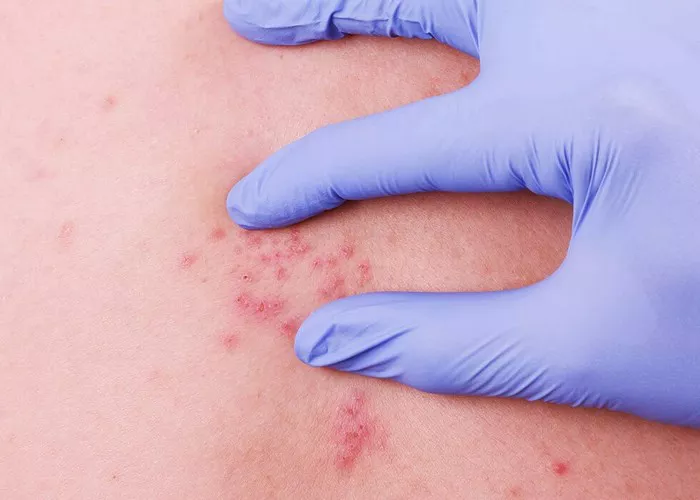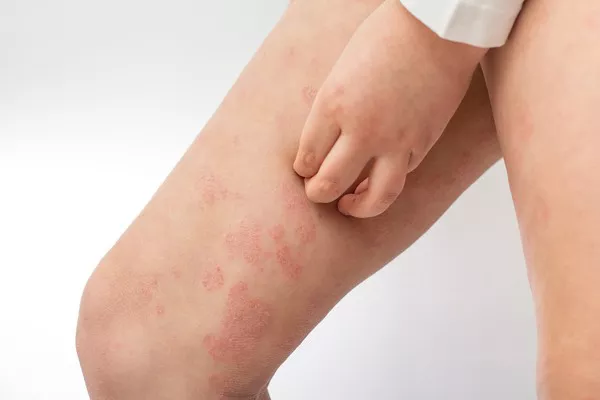Aciclovir, also known as acyclovir, is a widely used antiviral medication. Its primary function is to combat viral infections by inhibiting the replication of viruses in the human body. Aciclovir is most commonly prescribed for conditions caused by herpes viruses, including herpes simplex virus (HSV) infections and varicella-zoster virus (VZV) infections. One of the key applications of aciclovir is in the treatment of shingles, a painful condition caused by the reactivation of the varicella-zoster virus.
What is Shingles?
Shingles, or herpes zoster, is a viral infection that results from the reactivation of the varicella-zoster virus, the same virus that causes chickenpox. After an individual recovers from chickenpox, the virus remains dormant in the nerve tissues of the body. Years or even decades later, the virus can reactivate, leading to shingles. The reactivation often results in a painful rash, typically localized to one side of the body, following the path of a nerve.
The initial symptoms of shingles can include pain, itching, or tingling in a specific area, often followed by the appearance of a rash. The rash evolves into blisters that eventually crust over and heal. However, the pain associated with shingles, known as postherpetic neuralgia (PHN), can persist long after the rash has cleared. PHN can be debilitating and may significantly affect the quality of life of those affected.
Mechanism of Aciclovir
Aciclovir works by interfering with the DNA replication process of the herpes virus. When aciclovir is administered, it is converted into its active form, aciclovir triphosphate, within infected cells. This active form inhibits the viral DNA polymerase enzyme, which is essential for the replication of viral DNA. By blocking this enzyme, aciclovir prevents the virus from multiplying and spreading, thereby helping to control the infection and reduce the severity and duration of symptoms.
SEE ALSO: What Foods to Avoid During a Shingles Outbreak
Aciclovir in the Treatment of Shingles
Early Intervention
The effectiveness of aciclovir in treating shingles is maximized when the treatment is initiated early in the course of the infection. Clinical guidelines recommend starting antiviral therapy within 72 hours of the onset of the rash. Early administration of aciclovir can help reduce the severity of the acute symptoms, accelerate the healing of the lesions, and lower the risk of complications such as postherpetic neuralgia.
Dosage and Administration
For the treatment of shingles, aciclovir is typically prescribed in higher doses than for other herpes infections. The standard dosage for an adult is 800 mg five times a day for seven to ten days. This regimen helps ensure that a sufficient concentration of the drug is maintained in the bloodstream to effectively combat the virus.
Aciclovir is available in several forms, including oral tablets, topical creams, and intravenous formulations. The choice of formulation depends on the severity of the infection and the patient’s overall health. For most patients with uncomplicated shingles, oral aciclovir is the preferred option. However, in severe cases or for immunocompromised patients, intravenous administration may be necessary.
Reducing Complications
One of the most significant benefits of aciclovir treatment in shingles is the reduction in the risk of complications. By controlling the viral replication and spread, aciclovir can help minimize nerve damage and reduce the likelihood of developing postherpetic neuralgia. Although aciclovir may not completely prevent PHN, it has been shown to decrease the duration and intensity of pain in many patients.
Comparative Efficacy of Aciclovir and Other Antivirals
While aciclovir has been a mainstay in the treatment of shingles for many years, other antiviral medications, such as valaciclovir and famciclovir, have also been developed. These newer drugs are prodrugs of aciclovir, meaning they are converted into aciclovir in the body. They offer similar efficacy but have the advantage of less frequent dosing schedules.
Valaciclovir, for example, is typically taken three times a day, while famciclovir is taken three times a day for seven days. The less frequent dosing can improve patient compliance, making it easier for individuals to complete their course of treatment. Comparative studies have shown that valaciclovir and famciclovir are as effective as aciclovir in reducing the severity and duration of shingles symptoms, as well as in lowering the risk of complications.
Side Effects and Safety Profile
Aciclovir is generally well-tolerated, with a favorable safety profile. However, like all medications, it can cause side effects. The most common side effects of aciclovir include nausea, diarrhea, headache, and dizziness. These side effects are usually mild and transient.
In rare cases, more serious side effects can occur, such as renal dysfunction, particularly in patients with pre-existing kidney problems or those taking other nephrotoxic drugs. It is essential for healthcare providers to monitor kidney function in patients receiving aciclovir, especially those on high doses or prolonged treatment courses.
Allergic reactions to aciclovir are uncommon but can occur. Symptoms of an allergic reaction may include rash, itching, swelling, severe dizziness, and difficulty breathing. Patients experiencing any of these symptoms should seek immediate medical attention.
Special Considerations for Immunocompromised Patients
Immunocompromised patients, such as those with HIV/AIDS, cancer patients undergoing chemotherapy, or organ transplant recipients, are at higher risk for severe shingles and complications. In these patients, the varicella-zoster virus can cause more extensive and prolonged infections.
For immunocompromised individuals, aciclovir is a critical component of treatment. Intravenous aciclovir is often preferred for these patients to ensure adequate drug levels are achieved rapidly. The treatment duration may also be extended, depending on the patient’s response and the severity of the infection.
The Role of Aciclovir in Preventive Therapy
In addition to its use in treating active shingles, aciclovir can also be used prophylactically in certain high-risk populations to prevent the reactivation of the varicella-zoster virus. For example, in patients undergoing bone marrow transplantation or those receiving immunosuppressive therapy, aciclovir prophylaxis can significantly reduce the incidence of shingles.
Preventive therapy with aciclovir involves lower doses than those used for acute treatment. The prophylactic dose varies depending on the specific risk factors and the patient’s overall health status. Long-term use of aciclovir for prevention is generally well-tolerated and can be a valuable strategy in managing high-risk patients.
Emerging Therapies and Future Directions
While aciclovir and its derivatives have significantly improved the management of shingles, ongoing research is focused on developing new antiviral agents and treatment strategies. One area of interest is the development of vaccines to prevent shingles and its complications.
The varicella-zoster virus vaccine, commonly known as the shingles vaccine, has been shown to reduce the incidence of shingles and postherpetic neuralgia. The live attenuated vaccine (Zostavax) and the recombinant subunit vaccine (Shingrix) are two vaccines available for this purpose. Shingrix, in particular, has demonstrated high efficacy in preventing shingles and PHN, even in older adults.
In addition to vaccines, research is exploring the potential of novel antiviral agents with improved potency and broader activity against herpesviruses. These new agents may offer advantages in terms of efficacy, safety, and resistance profiles.
Conclusion
Aciclovir remains a cornerstone in the treatment of shingles, offering significant benefits in reducing the severity and duration of symptoms, as well as minimizing the risk of complications such as postherpetic neuralgia. Early initiation of aciclovir therapy is crucial for optimal outcomes. While newer antiviral medications like valaciclovir and famciclovir provide alternative options with convenient dosing schedules, aciclovir’s established efficacy and safety profile continue to make it a vital tool in managing shingles.
As research progresses, the development of effective vaccines and new antiviral agents holds promise for further improving the prevention and treatment of shingles. In the meantime, aciclovir, with its proven track record, remains a reliable and essential medication for patients suffering from this painful and potentially debilitating condition.
Related Topics:


























